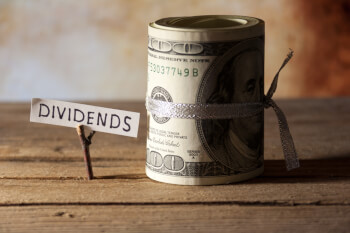This content is only available within our institutional offering.

22 Sep 2021
Sustainable Investment Research: Biodiversity matters
Associated British Foods plc (ABF:LON), 1,974 | AB INBEV (ABI:EBR), 0 | Anheuser-Busch InBev SA/NV (ABI:BRU), 0 | Cranswick plc (CWK:LON), 5,185 | Diageo plc (DGE:LON), 1,901 | Greggs plc (GRG:LON), 1,583 | Impax Environmental Markets PLC (IEM:LON), 392 | Kingfisher Plc (KGF:LON), 244 | Lloyds Banking Group plc (LLOY:LON), 82.6 | Marks and Spencer Group plc (MKS:LON), 339 | Mondi plc (MNDI:LON), 1,002 | Naked Wines plc (WINE:LON), 80.0 | NatWest Group Plc (NWG:LON), 529 | Pennon Group Plc (PNN:LON), 472 | Ricardo plc (RCDO:LON), 428 | Severn Trent Plc (SVT:LON), 2,582 | Smurfit Westrock PLC (SWR:LON), 3,338 | Spirax Group plc. (SPX:LON), 6,975 | Treatt plc (TET:LON), 264 | Unilever PLC (ULVR:LON), 4,636 | United Utilities Group PLC (UU:LON), 1,147

Sign in
This content is only available to commercial clients. Sign in if you have access or contact support@research-tree.com to set up a commercial account
This content is only available to commercial clients. Sign in if you have access or contact support@research-tree.com to set up a commercial account
Sustainable Investment Research: Biodiversity matters
Associated British Foods plc (ABF:LON), 1,974 | AB INBEV (ABI:EBR), 0 | Anheuser-Busch InBev SA/NV (ABI:BRU), 0 | Cranswick plc (CWK:LON), 5,185 | Diageo plc (DGE:LON), 1,901 | Greggs plc (GRG:LON), 1,583 | Impax Environmental Markets PLC (IEM:LON), 392 | Kingfisher Plc (KGF:LON), 244 | Lloyds Banking Group plc (LLOY:LON), 82.6 | Marks and Spencer Group plc (MKS:LON), 339 | Mondi plc (MNDI:LON), 1,002 | Naked Wines plc (WINE:LON), 80.0 | NatWest Group Plc (NWG:LON), 529 | Pennon Group Plc (PNN:LON), 472 | Ricardo plc (RCDO:LON), 428 | Severn Trent Plc (SVT:LON), 2,582 | Smurfit Westrock PLC (SWR:LON), 3,338 | Spirax Group plc. (SPX:LON), 6,975 | Treatt plc (TET:LON), 264 | Unilever PLC (ULVR:LON), 4,636 | United Utilities Group PLC (UU:LON), 1,147
- Published:
22 Sep 2021 -
Author:
Harold Hutchinson | Alicia Forry, CFA -
Pages:
57 -

We believe biodiversity is on the verge of becoming as big a concern to policymakers – and by extension to companies – as greenhouse gas emissions. The two factors are deeply interrelated, but biodiversity has been overlooked in the past. Fortunately for all life on the planet, that is now changing. The Dasgupta Review, published earlier this year, argued that natural capital should be considered an economic asset and was hailed as a landmark piece of research. The UN’s Decade on Ecosystem Restoration runs from 2021-2030 and will drive a global movement to increase conservation efforts. The G7 leaders agreed to support global biodiversity targets, including a proposal ahead of COP15 to protect or conserve at least 30% of land and oceans. Considering that species populations have declined by an average of nearly 70% over 1970-2016, time is of the essence.
Biodiversity provides many goods and services to society and to businesses; the total economic value of these is estimated to be $169-$184trn, or 1.3-1.4x global GDP. However, land use change (for agriculture, mainly), over-use of resources, global warming due to emissions, plastics and chemical pollution and other factors are harming biodiversity. The economic costs of this can be significant, with outbreaks of zoonotic diseases (where pathogens jump from wild animal to human, due to loss of habitats) regularly running into the tens of billions of dollars, and the COVID-19 virus – thought by some scientists to be zoonotic – estimated to cost $28trn by 2025.
Companies are already taking note, but disclosure frameworks are uncertain. Standardising data is particularly challenging for biodiversity given the various ways to measure it. The TNFD will propose a disclosure framework in 2023, based on the framework decided at COP15. In the meantime, companies are using a variety of methods and metrics to communicate their progress, but we note some themes are already starting to develop.
Approximately 50% of the FTSE 100 and 20% of the FTSE 250 have a biodiversity policy in place. This broadly tallies with continental European levels of disclosure, and is ahead of the US. UK Water and Paper & Packaging companies were early movers in biodiversity, unsurprisingly, but Consumer companies are quickly catching up, as are Industrials. We discuss a number of UK companies that we think are making a significant effort on biodiversity, including Associated British Foods, Cranswick, Diageo, DS Smith, Greggs, Kingfisher, Marks & Spencer, Mondi, Pennon, Ricardo, Severn Trent, Smurfit Kappa, Spirax-Sarco, Unilever and United Utilities. We also propose some suggested disclosures to help investors better understand their biodiversity risks.







